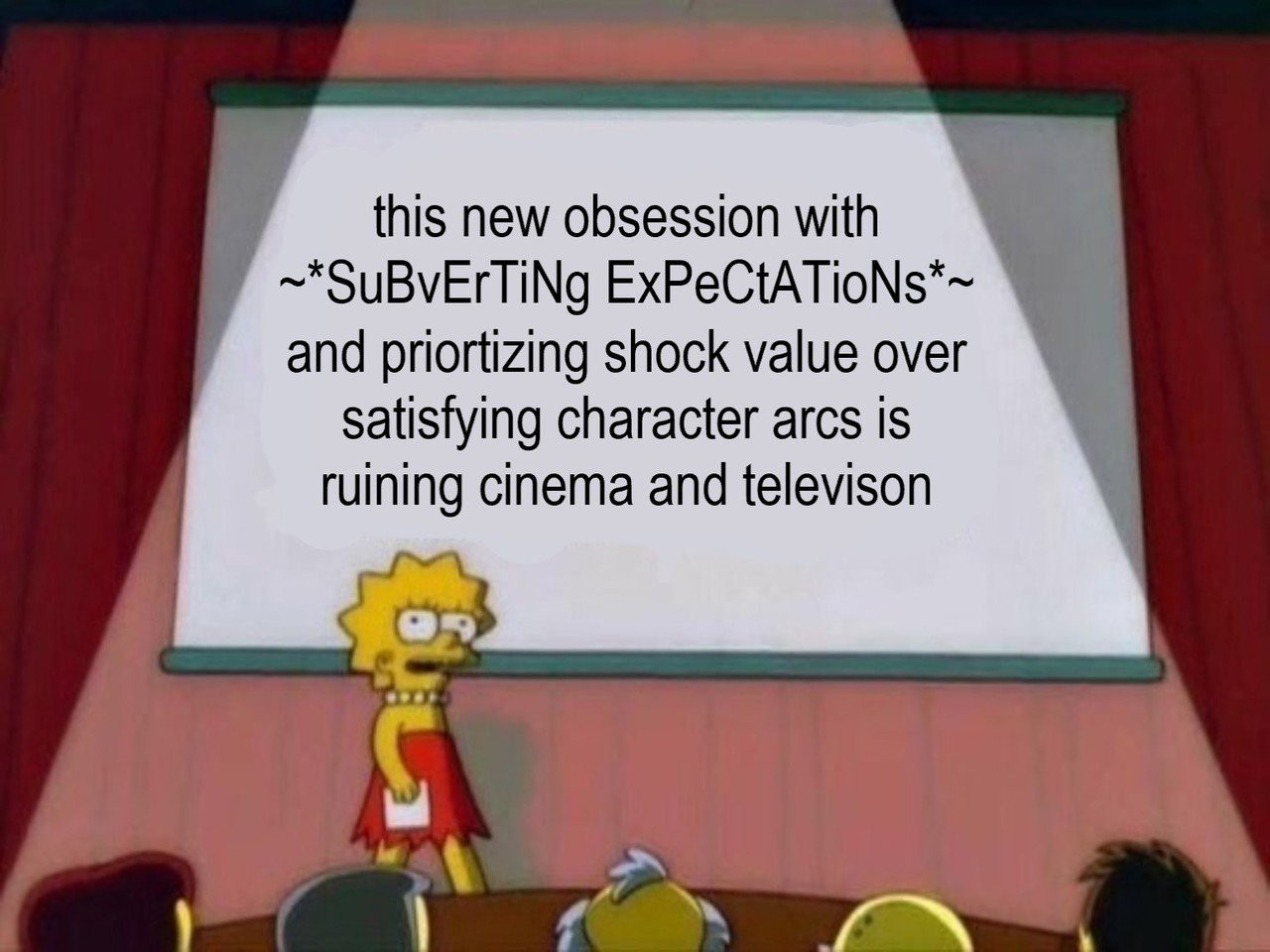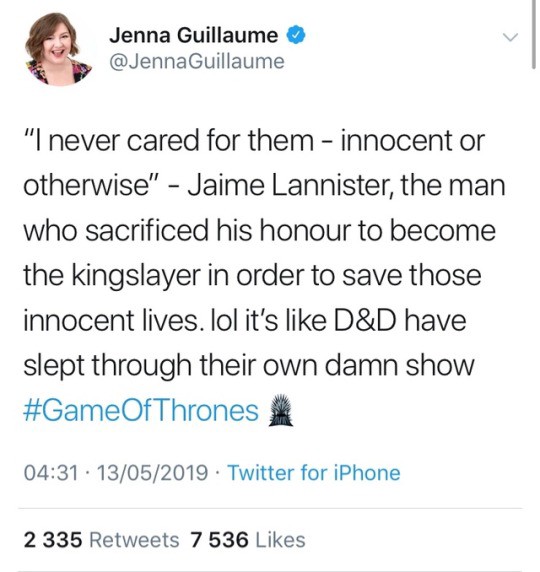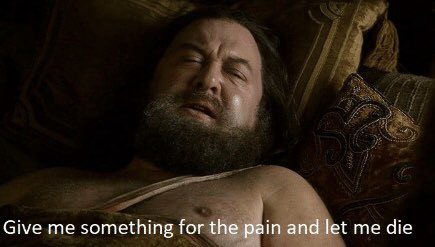This new trend in television has been destorying good stories for years
 Twitter
Twitter
Before we start this, I have a confession to make: I have been a Game of Thrones addict for years.
I cannot remember anymore how many mornings I was late for class or work after spending all night reading fan theories and Westerosi history, how many pointless arguments I have started with friends about who truly is the best character, or who really deserves the Iron Throne.
I got hooked when I read the A Song of Ice and Fire books by George RR Martin, and my enjoyment of the story caught on flames like Wildfire after the first few seasons of the critically acclaimed show. Unlike most other recent Fantasy fiction I know of, Game of Thrones is a masterpiece of the genre. It is not only full of incredibly well-written High Fantasy storylines and characters (the mirror imaging of the diametrically opposed twins Cersei and Jaime in a fundamentally patriarchal world, as Lannisters, hello?!), but also rich in deeply human themes and explorations of grey morality, as well as a deep-running fascination with the breaking and subversion of classic Fantasy tropes.
?We read fantasy to find the colors again, I think. To taste strong spices and hear the songs the sirens sang. There is something old and true in fantasy that speaks to something deep within us, to the child who dreamt that one day he would hunt the forests of the night, and feast beneath the hollow hills, and find a love to last forever somewhere south of Oz and north of Shangri-La.? ? George RR Martin
In the first few seasons of the show, this was exceptionally well executed on screen.
Remember Ned?s death?
At the time, critics pointed out that in any other show Ned would have been ?safe?: he?s the archetypical male hero, the only one suited for the Throne, who should have ended up on it ? especially if you compare it to the male protagonists of The Walking Dead or Breaking Bad, which aired around the same time and were on the forefront of the cultural consciousness. And which would never in a hundred years have killed off Rick or Walter after the first season.
Enter GoT and the execution of Ned Stark at the whims of a stupid, narcissitic and cruel boy-king. It was new and exciting, and most importantly, within the boundaries of the GoT world, it made sense. Audiences went wild.
The fascination has continued for years. That is, until the show-runners got free reigns after their story overtook the narrative within the books.
Since then, as many former fans have proclaimed all over the internet, sh*t has hit the fan.
And there is a simple reason why.
The bastardization of the source material.
George RR Martin has come up with an immense universe filled to the brim with tales and adventures and almost too many characters to count (2302). The show has wisely chosen to only adapt a subset thereof to the screen. However, there is still a lot to go around, from Dorne in the Westerosi South, to the North, and all the way to the Free Cities in the East. Almost as a consequence thereof, fans are equally incensed about a wide variety of storylines and characters in the show.
However, one key thing that the show never quite managed to get on screen, is the ultimate reason why the books and the series is so good.
Ned?s death was good because it subverted a great trope: the expectation that the unwilling but just male hero will end up victorious.
Instead, Ned died.
This breaking of cliches and circles in general is almost an obsession of the series. Dany is huge on it (the Breaker of Chains, who wants (wanted?) to Break the Wheel); Sansa begins as the ?little bird? but grows to become a strong and powerful player in her own right not through overcoming it but because of this dainty feminity that makes her enemies overlook her smarts, just and vengeance-seeking Oberyn Martell manages to outmaneuver Gregor Clegane in duel but the Mountain trips him and crushes his skull; and even most of the canonical prophecies such as Azor Azhai are somehow about rebirth or the completion of a circle.
But what the show-runners appear to take away from these amazing scenes and plots is the violence, not the cunning subversion of our expectations. Oberyn?s death wasn?t spectacular because of Clegane?s brutality, but because of how it brought a swift and unexpected end to his quest for justice that had been built up for an entire season.
Just think back to one of the most defining episodes of the first half of the show: the Red Wedding.
There had been lengthy built-up. In the Frey?s minds, reasons for betrayal had been accumulating for several seasons. And even during the episode, small hints were given (for example, the musicians that couldn?t play ? because they were secret sellswords).
The final reveal was awe inducing television because everything had been leading up to it right in front of our eyes ? and because, again, our expectations for Robb Stark?s vengance upon the murderes of his father had been subverted, in a way that was cleverly built up and masterfully executed.
Contrast that with the dragon sniping scorpions we have in this season. They work one day to achieve a feat only done once before throughout all of history, aided by the physically impossible art of hiding an entire fleet from two airborne warmachines on a bright and sunny day. Only to fail completely on a grand scale the next episode.
 Twitter
Twitter
Spoilers for The Walking Dead, but in the end this obsession with violence over satisfying storylines is the same that killed Glenn Rheed in TWD. It was meant to subvert tropes but ultimately served no other purpose than shocking audiences with allegedly never seen before violence.
That it did. It also ended the show?s popularity.
What all these show-runners get wrong is that audiences don?t want to see pointless violence.
In Game of Thrones, things would make more sense if the sudden Dragon death (or Dany?s Mad Queen plot, to be honest with you) had had more than 1.2 episodes of build-up. If there had been longer story arcs, hints across seasons, solid character building. In other words, if it was good story-telling.
And just a little sidenote here: I am not saying things haven?t been foreshadowed, technically. But foreshadowing is not the same as actually developing that storyline.
But Game of Thrones abandoned those concepts in favour of senseless violence for shock value. Now, we have show-runners whose source material has run out, and whose only takeaway from the material?s original success is that good entertainment equals subverting the expectation that we don?t want to see senseless gore for shock value. Not meaninful character arcs (which could also include gore if it makes sense!), or satisfying narratives. And to be frank, it?s ruining television for me.
In conclusion:
 Robert Baratheon, Season 1
Robert Baratheon, Season 1

